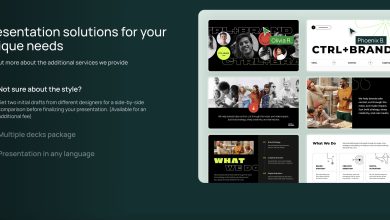Daily treatment with SC0023 yielded treatment efficacy 53.5% ± 19.2% relative to baseline in 24-hour daily cough rate and 19.5% ± 6.2% placebo effect
Cough rate reduction was observed from the first day of dosing and across baseline cough rates ranging from 5 to 25 coughs/hour
Persistent cough suppression post-treatment was also observed across cough rates, reaching 86% reduction (with 95% confidence interval of 80.8% to 91.3%) relative to the 25/h baseline cough rate three weeks post treatment
RIYADH, Saudi Arabia–(BUSINESS WIRE)–Sensory Cloud Inc., a clinical-stage biopharmaceutical company pioneering therapies that deactivate mechano-sensitive ion channels to treat respiratory disease, is today reporting new results from the REACH trial at King Saud University Medical City for the treatment of patients with refractory chronic cough (RCC). SC0023 is a proprietary therapeutic aerosol composed of ions endogenous to human airways, acting to relieve compression of mechano-sensitive ion channels implicated in chronic cough hypersensitivity.
“Chronic cough is a major unmet healthcare need afflicting an estimated 10% of the adult human population globally,” said Dr. Kholood Altassan, PhD, head of the Preventive Medicine and Public Health unit at King Saud University and PI of the REACH trial. “Those of us living in warm dry climates are particularly at risk. We are thrilled to have successfully completed the Phase 2a REACH trial of SC0023, regulated by the SFDA as a medical device, and particularly designed to reduce cough and cough hypersensitivity by rehydrating laryngeal tissue.”
“By conducting the REACH trial in Riyadh, we wished to explore whether chronic cough behavior and treatment via daily laryngeal rehydration would follow patterns we had previously seen in a recent exploratory trial at Imperial College London, notwithstanding the dryer and dustier air in Riyadh,” said David A. Edwards, PhD, CEO and founder of Sensory Cloud. “That chronic cough behavior and treatment efficacy were indistinguishable between the London and Riyadh sites, may point to the predominance of time spent within indoor arid-air living environments and the commonality of arid indoor atmospheric conditions.”
“We look forward to exploring the safety and efficacy of Sensory Cloud’s final alkaline hypertonic divalent salt aerosol composition in the upcoming, multi-site REACH-2 trial,” said Lorcan McGarvey, MD, Queens University Belfast. “We are particularly interested in confirming post-treatment efficacy of cough rate suppression in relation to the potential to diminish dosing frequency in a transition from treatment to management of the chronic cough condition.”
Due to a significant treatment period effect from the crossover design for the primary efficacy analysis of relative change from baseline in 24-hour cough frequency the analysis was limited to the first dosing period as a parallel arm design.
Preliminary data from the intention-to-treat (ITT) (n=10) and per protocol analyses (n=7) confirm the exploratory clinical findings of Abubakar-Waziri et al (2024) revealing reduction in cough rate and cough bout rate over placebo in RCC patients across baseline cough rates. Post hoc analyses of the data considering adherence of the investigational product showed a 34% (n=6) placebo adjusted reduction in cough rate (p=0.045). Visual analog score (VAS) was observed to fall by 40 relative to placebo (n=6) and similarly across baseline cough rates — falling 56 for baseline cough rate of 5 coughs/hour and falling 54 for baseline cough rate of 25 coughs/hour. Persistency of cough rate suppression, as monitored using the Hyfe CoughMonitor watch, continued for several weeks post dosing notwithstanding the 3 hour clearance time of SC0023 endogenous ions as is consistent with treatment de-compression and down-regulation of mechano-sensitive ion channels (MSCs) implicated in cough hypersensitivity. There were no clinically significant treatment emergent adverse events reported, and two SAEs reported were deemed not related to the investigational product.
Based on the clinical findings at King Saud University, Sensory Cloud Inc. is preparing a follow-up Phase 2 trial at multiple sites in London and Belfast in its development of a potentially unique first-line treatment of refractory chronic cough.
About Sensory Cloud Inc.
Sensory Cloud Inc. is a clinical-stage biopharmaceutical company pioneering therapies that resolve airway inflammation to treat respiratory disease. The Company’s proprietary therapeutic platform is an outcome of over 20 years of scientific research by David A. Edwards, PhD, at Harvard University, and most recently at Johns Hopkins University Medical School in collaboration with Kian Fan Chung MD at Imperial College London and Dennis Ausiello MD at Harvard University Medical School. Their research has shed light on the dehydration of human airways by indoor living and climate change and its contribution to the rise of chronic cough, now estimated to afflict 10% of the human adult population. The Company intends to pursue Phase 2 clinical testing of its investigational drug for CC as well as other inflammatory airway conditions. For further information, please contact [email protected].
About King Saud University
King Saud University is a public university in Riyadh, Saudi Arabia. It is the first university in Saudi Arabia. The College of Medicine at King Saud University, established in 1967 (1387 AH), was the first medical college in Saudi Arabia. In 1974 (1394 AH), the women’s section was inaugurated to advance female medical education. On January 12, 1982 (17 Rabi’ al-Awwal 1402 AH), King Khalid inaugurated the college’s current facility and King Khalid University Hospital in the Riyadh campus. Since its inception, the college has graduated over 5,089 physicians and more than 1,477 specialists from fellowship programs. In 2009, the college achieved global recognition, ranking 79th among medical colleges worldwide according to the Times Higher Education rankings.
Abubakar-Waziri H, Edwards DA, Bhatta DB, et al. Inhaled alkaline hypertonic divalent salts reduce refractory chronic cough frequency. ERJ Open Res 2024; 10: 00241-2024.
Edwards DA, Edwards, A, Li, D Wang, L, Chung, KF, Bhatta, D, Bilstein, A Hanes,, Endirisinghe, I, Burton Freeman, B, Button, B. Global warming risks dehydrating and inflaming human airways. Nature Commun Earth Environ 6, 193 (2025).
Edwards DA, Chung KF. Mucus Transpiration as the Basis for Chronic Cough and Cough Hypersensitivity. Lung. 20, 17-24 (2024).
Contacts
Press Contact:
Jack Taylor PR
[email protected]



